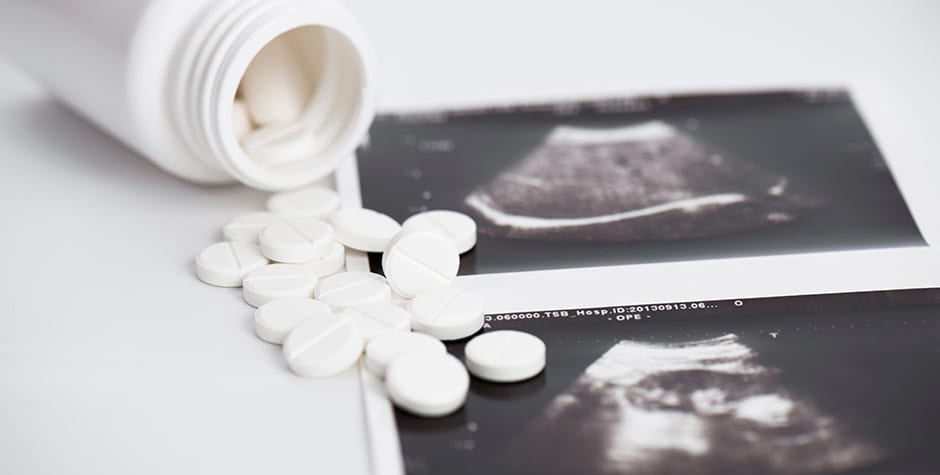Court of Appeals Slaps Down FDA on Biden’s Abortion Pill Expansion – Case Destined for the Supreme Court
In an important decision handed down this week, the Fifth Circuit Court of Appeals issued a critical ruling regarding the availability of the abortion pill, mifepristone, which is responsible for more abortions than any other method nationwide. Though the court preliminarily declined to overturn the FDA’s 2000 approval of the drug, it affirmed the district court’s reinstatement of restrictions on access to mifepristone that were loosened by the FDA in 2016 and 2021. This ruling is a resounding victory for unborn life and women’s health.
As explained in more detail here, the case AHM v. FDA was brought in 2022 by a group of pro-life medical organizations and doctors who challenged: (1) the FDA’s initial approval, in 2000, of the abortion pill for use in the United States, as well as (2) the FDA’s subsequent removal, in 2016 and 2021 (under the guise of COVID), of various health safeguards and limits on the administration of the abortion pill. (As we have argued previously, the delivery of the abortion pill by mail, as the FDA permitted in 2021, violates federal law.)
Immediately after the district court issued a preliminary injunction in favor of the medical groups and doctors, the Biden Administration filed an emergency appeal to the Fifth Circuit and then to the U.S. Supreme Court. The ACLJ filed amicus briefs in support of the pro-life plaintiffs at every stage of the process. See here, here, here, and here.
Unfortunately, over a written dissent by Justice Alito, the Supreme Court stayed the district court’s ruling pending the appeal in the Fifth Circuit and any potential subsequent decision by the Supreme Court. In other words—and disappointingly—while this appeal continues through the courts, the district court’s preliminary injunction order is stayed and does not go into effect.
While the Fifth Circuit’s decision not to overturn the FDA’s approval of the abortion pill in 2000 is regrettable (it held that the statute of limitations had run out – i.e., it was too late to challenge the 2000 approval), the court’s ruling on the FDA’s loosening of restrictions on access to chemical abortions is a tremendous victory. The court held that the FDA’s efforts to ease restrictions on access to the abortion pill had failed on multiple fronts.
Judge Jennifer Walker Elrod, writing for the court, noted that it was undisputed that "a significant percentage of women who take mifepristone experience adverse effects" and that "thousands of women, and as many as hundreds of thousands, have experienced serious adverse effects as a result of taking the drug, and required surgery or emergency care to treat those effects." Judge Elrod summarized by stating that “[i]n loosening mifepristone’s safety restrictions,”
[1] [The] FDA failed to address several important concerns about whether the drug would be safe for the women who use it.
[2] It failed to consider the cumulative effect of removing several important safeguards at the same time.
[3] It failed to consider whether those “major” and “interrelated” changes might alter the risk profile, such that the agency should continue to mandate reporting of non-fatal adverse events.
[4] And it failed to gather evidence that affirmatively showed that mifepristone could be used safely without being prescribed and dispensed in person.
In other words, the FDA put the ideology of abortion on demand ahead of its core mission to protect “the public health.” Yet another instance of gross abortion distortion.
The court of appeals explicitly did not reach the argument we had made that mailing abortion pills violates federal law. That argument thus remains open. But in a separate opinion, Judge James Ho agreed with us that federal law:
makes it a federal crime to mail any "article or thing designed . . . or intended for producing abortion," as well as any "drug, medicine, or thing . . . advertised . . . in a manner calculated to lead another to use . . . it for producing abortion." 18 U.S.C. § 1461. It also makes it a crime to "use[] . . . [an] express company" to ship a "drug, medicine, article, or thing designed . . . or intended for producing abortion." 18 U.S.C. § 1462.
Judge Ho also skewered the FDA for approving mifepristone as a drug that treats an illness. "Pregnancy is not an illness."
The ongoing legal battle over access to chemical abortions is far from over. And it’s vital that the battle press on. As we have explained, “the percentage of abortions using pills instead of surgery has grown ever since the initial approval of RU-486 to the point where now, according to the CDC, a majority of abortions are done by pills.” In addition, “with the fall of Roe v. Wade in the Supreme Court’s Dobbs decision, states can now outlaw, within their territory, the killing of children by abortion. But abortion pills represent a potential way to get around pro-life laws by smuggling or mailing the medications into states where abortion is illegal.”
We have been active in filing supportive amicus briefs in this case and will continue to do so. As this case makes clear, the end of Roe v. Wade was just the beginning of another front in the defense of preborn children and women’s safety.
This case appears destined for Supreme Court review. The Supreme Court’s stay over both the Fifth Circuit and the trial court will stay in place until the Supreme Court acts. Either the Court hears the case and decides it one way or another, or the Court refuses to hear the case, thus dissolving the stay (which seems unlikely due to their previous stay). We are already preparing our next brief as this case moves forward.
